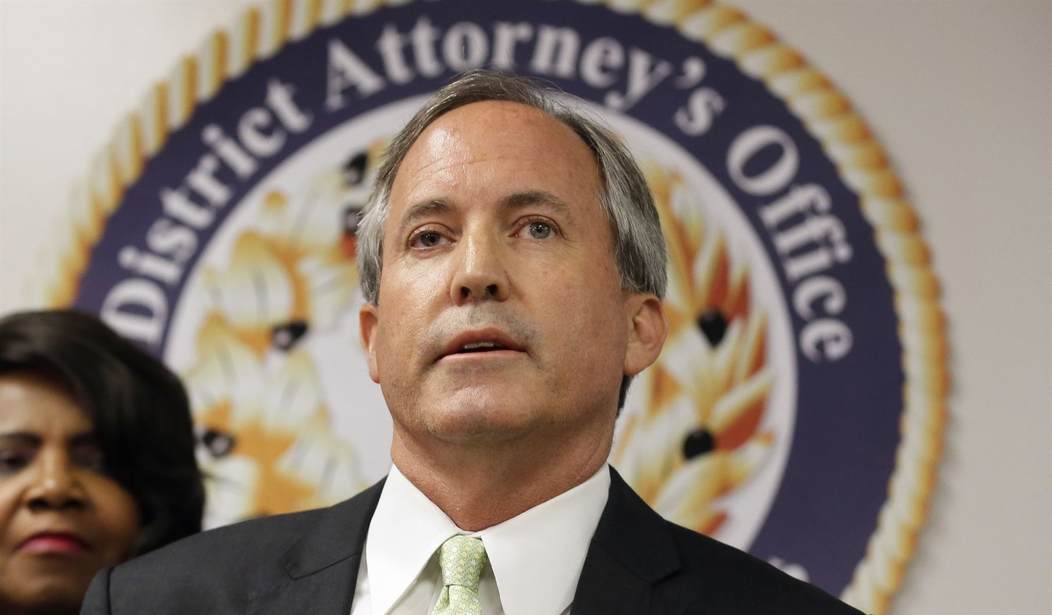Earlier today I wrote about confusion at the state level that has set in since the Supreme Court’s ruling in the Dobbs v Jackson Women’s Health case was issued. Another state has been temporarily restrained from banning abortions now. A Harris County (Houston) District Court judge granted a temporary restraining order today that blocks an abortion ban that was in place before Roe v. Wade in Texas.
On Monday, a group of abortion providers filed a lawsuit in response to the Supreme Court’s ruling. The purpose was to prevent an old abortion ban, which predates Roe v. Wade, from being enforced before a trigger law banning most abortions in the state goes into effect. Texas Attorney General Ken Paxton threatened last week that the old abortion ban would be in effect.
The ruling today is being called a stopgap measure that will likely be in effect for about two months. There is a hearing scheduled on July 12 to determine if the restraining order will be extended. Abortions up to about six weeks can now be performed but only in the clinics involved in the lawsuit.
Abortions can resume only at the clinics named in the lawsuit. Besides the Whole Woman’s Health clinics, the others that will resume operations are Alamo Women’s Reproductive Services in San Antonio, Brookside Women’s Medical Center and Austin Women’s Health Center in Austin, Houston Women’s Clinic and Houston Women’s Reproductive Services in Houston, and Southwestern Women’s Surgery Center in Dallas.
Pro-life organizations think that the restraining order will soon be vacated.
Paul Linton, an attorney for the anti-abortion group Texas Alliance for Life, said he thought a higher court would soon vacate the temporary restraining order and that the pre-Roe abortion ban should stand.
“I don’t think it has any merit,” Linton said. “I don’t think there’s any plausible argument that the laws have been expressly repealed, and the repeal-by-implication argument, I think, is very weak.”
John Seago, president of Texas Right to Life, said, “The abortion industry has nothing to lose, so they’re going to try to challenge every law for the next 60 days. We do believe that the pre-Roe statute is valid and that the arguments they’re making to the court won’t stand.”
Abortion providers are moving forward, calling in patients and scheduling abortions.
“It is a relief that this Texas state court acted so quickly to block this deeply harmful abortion ban,” Marc Hearron, senior counsel at the Center for Reproductive Rights, said in a press release. “This decision will allow abortion services to resume at many clinics across the state, connecting Texans to the essential health care they need. Every hour that abortion is accessible in Texas is a victory.
Whole Woman’s Health, which operates abortion clinics in McAllen, McKinney, Fort Worth and Austin, said it would resume providing abortions as a result of this ruling.
“We immediately began calling the patients on our waiting lists and bringing our staff and providers back into the clinics,” said Amy Hagstrom Miller, the organization’s president and CEO.
Paxton’s advisory issued on Friday, after the Supreme Court’s ruling was announced, added to the confusion.
Attorney General Ken Paxton issued an advisory Friday, noting that some prosecutors might immediately “pursue criminal prosecutions based on violations of Texas abortion prohibitions predating Roe that were never repealed by the Texas Legislature. Although these statutes were unenforceable while Roe was on the books, they are still Texas law. Under these pre-Roe statutes, abortion providers could be criminally liable for providing abortions starting today.”
The temporary restraining order will likely only last for about two months. Paxton noted in his advisory last Friday that the trigger law on the books would go in to effect 30 days after a judgement is issued overturning Roe v Wade. Typically, a judgement is issued at least 25 days after the opinion. That adds up to the state’s trigger law not taking effect for about two months.








Join the conversation as a VIP Member